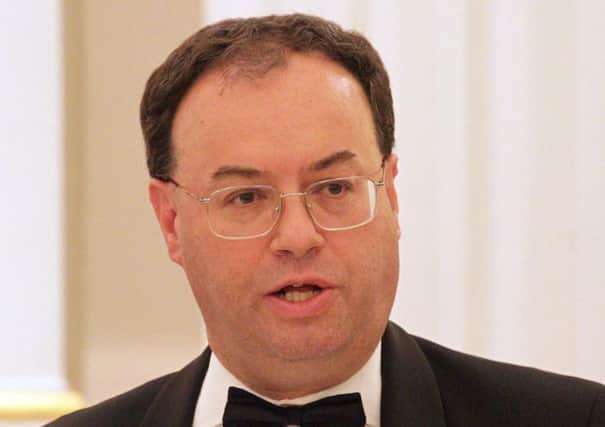Banking watchdog prepared to vet senior candidates


Andrew Bailey, chief executive of the Prudential Regulation Authority (PRA) and a deputy governor of the Bank of England, said some companies were already in the habit of sending in a list of two or three candidates to test the waters before making an official appointment.
In an interview on BBC Radio 4’s Today programme, Mr Bailey said: “It’s not uncommon, though we don’t require it, for firms to say, ‘Would you meet two or three people?’”
Advertisement
Hide AdAdvertisement
Hide AdBut he made it clear he would provide guidance only and would not take on the role of effectively making appointments to banks. “I don’t want to get into a position where firms send me two or three candidates and say, ‘You pick’ – they have to pick,” he said.
“But I am prepared to offer them views on people if that helps them in their process.”
Mr Bailey became head of the PRA in April, shortly after it took over some of the functions of the Financial Services Authority (FSA) in a shake-up of regulations designed to avoid a repeat of the financial crisis.
Mr Bailey said the vetting process for senior bankers had become “far more stringent”, and he believed disgraced former Co-operative Bank chairman Paul Flowers would not now be approved.
Flowers, a Methodist minister, stepped down in June after a £1.5 billion black hole was found in the bank’s finances. He has since been arrested for drugs offences, and it emerged he had little experience of banking before his appointment as chairman in 2010 was approved by the FSA.
However, Mr Bailey said banking experience was not essential for non-executive roles such as chairman. He pointed out that immediately after the financial crisis, there had been calls for more people from outside the industry to take on such roles.
“We look for a level of understanding of the financial system, but we also look for judgment, experience in corporate governance and general skills,” he said.
“The real skill of those roles is to be able to ask the probing, difficult questions of executives, and know whether they are being led up the garden path.”
Advertisement
Hide AdAdvertisement
Hide AdMr Bailey said he did not believe Flowers would have met those criteria.
The PRA came under fire last week after it emerged that it had not formally rejected a single applicant to be a director of a bank.
Figures released by the Treasury showed that none of the 1,086 applications for so-called “controlled functions” within a bank made between May 2010 and October 2013 were rejected.
However, Mr Bailey said he had effectively blocked people from taking up posts. It is understood the PRA indicates it is “minded to reject” candidates over which it has doubts. It is thought the option may have been be responsible for many of the 60 applications withdrawn over the period to October.